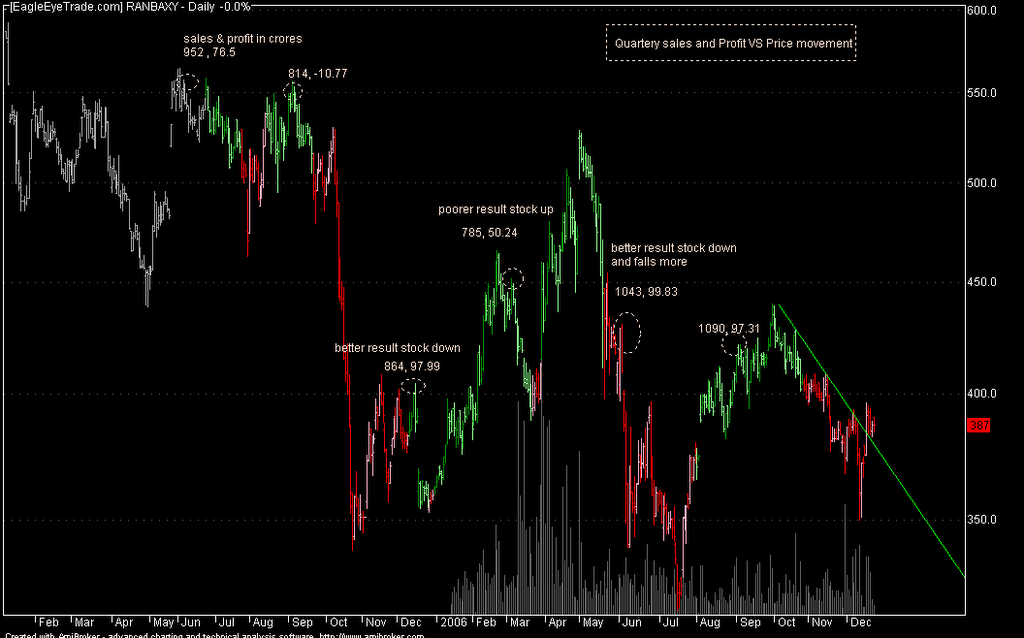Jewellery, IT and Pharma Exporters lose at the Rupee gains against the Dollar
The recent weakness in the U.S. dollar is sending tremors through a popular practice in foreign-exchange trading, raising the potential for further instability in global currency markets.
The practice is known as the carry trade: Investors borrow money in a country in which interest rates are near zero, such as Japan, and invest it in a country like New Zealand, where interest rates hover above 7%. The trade works best when currencies involved remain relatively stable -- sharp currency moves can wipe out gains from the difference in interest rates.
Weighing heavily on the dollar recently: expectations the Federal Reserve will reduce interest rates in 2007, making dollar assets less attractive to investors. Yesterday, the Fed left its benchmark short-term rate unchanged.
Already, the U.S. dollar's tumble against the euro is prompting some observers to predict that currency rates around the world will be more volatile going forward.
That is bad news for the carry trade and, possibly, for other currencies and some stock markets. The stakes are high: The last time these trades unraveled was in the spring, when investors spooked by the prospect of rising Japanese interest rates abandoned riskier investments in countries from Iceland to Turkey.
Stocks in developing countries plummeted, along with some of their currencies. In Iceland, a favorite destination for the carry trade, the country skirted a full-blown financial crisis.
Despite that turmoil, market watchers say the carry trade has proved irresistible, thanks to the continued allure of low-cost borrowing in Japan and elsewhere. "
There are a lot of people who still have these trades on," says Paresh Upadhyaya, a portfolio manager at Putnam Investments in Boston. At the same time, he says, "Things are lining up that could unwind them any day now."
One such factor would be fluctuation in currency rates. For most of the past six months, exchange rates for major currencies have remained relatively stable in comparison with prior periods. For carry traders, that has meant they could reap returns from the difference between the interest rates in two countries without worrying that a currency swing will erase their profits -- or worse.
But the recent selloff in the U.S. dollar will lead to larger fluctuations in other currencies, BNP Paribas argued in a recent report, including those low-interest-rate currencies that fund the carry trade, such as the Japanese yen and the Swiss franc. "Carry traders need to be cautious," it warned.
Some market observers believe an unwinding of carry trades can unfold in a gradual way that wouldn't rock markets. Others say experience shows these reversals are rarely an orderly affair.
"Everyone is always looking for the magic signal on how to get out before [the carry trade] unravels," says Richard Clarida, global strategic adviser at Pacific Investment Management Co. and a professor at Columbia University in New York. "Carry trades work until they don't."
Adding to the uncertainty is the fact that no one knows exactly how big the carry trade is.
One indicator of its vigor can be found in the weekly reports from the Chicago Mercantile Exchange on currency futures.
Hedge funds and currency speculators use futures positions to mimic the mechanics of the carry trade, since such instruments also reflect the interest-rate differentials between countries.
The most recent CME figures show that while speculators have reduced such trades, they still have substantial short futures positions in the Japanese yen and the Swiss franc -- two currencies commonly used to fund the carry trade -- and considerable long positions in the Australian dollar and the New Zealand dollar, two currencies used to extract profits from the trade. In the currency markets, short positions are agreements to sell a currency on a specified date, while a long position is a purchase order.
Others see the dimensions of the carry trade in data on financial flows in and out of Japan.
In a recent note to clients, Goldman Sachs said the size of the carry trade outstanding involving yen is "substantial" and could account for a large chunk of the country's balance-of-payments surplus, which is 4%-5% of gross domestic product, or the total value of goods and services produced in the nation.
If the trade were to unravel, the investment bank said, the yen could strengthen as investors buy the currency to cover their borrowings. On the flip side, the currencies that served as investment vehicles could tumble as investors sell their holdings.
Central banks are paying attention. In November, Bank of Japan Governor Toshihiko Fukui told the Japanese Parliament that there was a big risk that a sharp shift in the country's interest-rate outlook could spark "a rapid unwinding" of yen carry-trade positions and "bring on various distortions."
The reverberations would extend well beyond financial-market players. Regulators in South Korea, for example, are investigating the ballooning number of yen-denominated loans granted by local banks. Lured by the low interest rates attached to such loans, individuals have plowed the proceeds into higher-yielding assets like real estate, spurring fears of a bubble.
Meanwhile, in their constant search for bigger returns, carry traders are starting to focus on currencies in emerging markets, where interest rates can be even higher than in developed countries.
Thanks to increasing trading in these markets, traders have become more comfortable borrowing in Chilean pesos and investing that amount in Turkish lira, or borrowing in New Taiwanese dollars and investing in Hungarian forint.
These trades, too, can reverse rapidly, prompting currencies to tumble. If investors were to get spooked as they did earlier this year, the likely losers would be countries with a large current-account deficit, such as South Africa and Hungary, says Mark Farrington, head of currency at Principal Global Investors in London.

